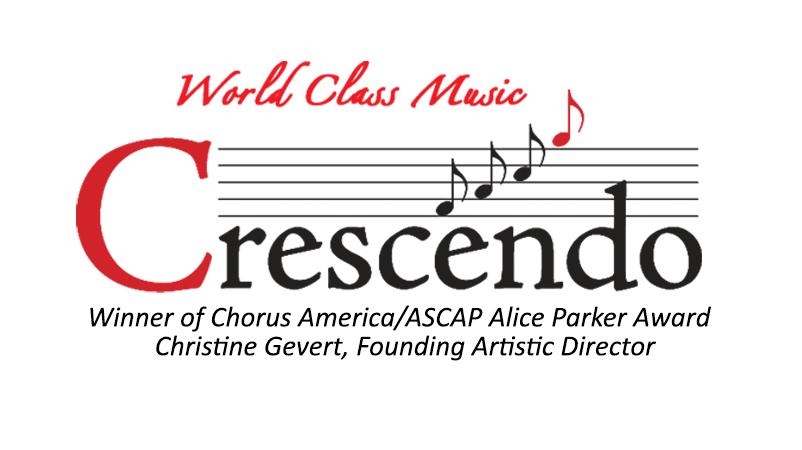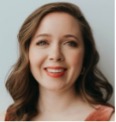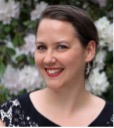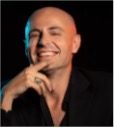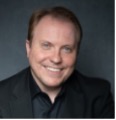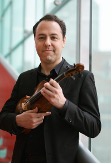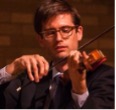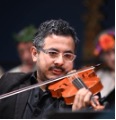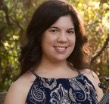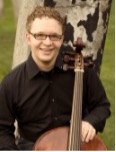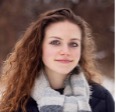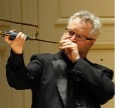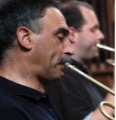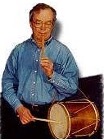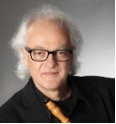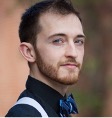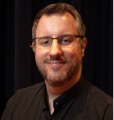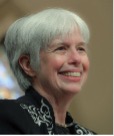Bach-Circle: Christmas Oratorios and Contemporary Female Voices
Bringing Heaven to Earth
Recorded: December 29, 2024 @ 4:00 PM
Saint James Place,
Great Barrington, MA
Soloists
Paulina Francisco, soprano
Jordan Rose Lee, mezzo soprano
Nicholas Tamagna, countertenor
Gene Stenger, tenor (Evangelist)
Douglas Williams, bass
Crescendo Period Instrument Orchestra (*principals)
Edson Scheid* (concertmaster)
Emily Hale, violin
Job Salazar Fonseca, violin
Jeremy Rhizor*, violin
Madeline Stewart, viola
Jessica Troy*, viola
Nathaniel Whittaker, violoncello
Guinevere Fridley, bass
Paul Perfetti*, trumpet
Brian Kanner, trumpet
Ben Harms, timpani
Alison Gangler*, oboe & oboe d’amore
Owen Watkins, oboe & oboe d’amore
Allen Hamrick, bassoon
Juan Mesa, organ
Crescendo Chorus
(°Section Leader, *Vocal Ensemble Member)
Soprano:
Louise Brown, Donna Castaner°, Kathy Drake*, Amy Eisen°, Emily Elliot*, Sarah Fay°, Alexandra Ghiz°, Jordan Rose Lee°, Rebecca McFarland*, Sarah Melcher*, Roberta Roll* (Body Work), Elizabeth Tillinghast
Alto:
Pat Barton*, Sarah Bleasdale°, Traudi Chiaravalotti, Laura Evans°, Camilla Fallon, Martha Nesbitt, Lauren Paul*, Susan Pettee*, Max Rook°, Mary Sullivan*
Tenor:
Jay Crawford-Kelly, Gordon Gustafson, Matthew Kreta°, Randy Orzano*, Peter Perkins°, Kevin Ray°, Douglas Schmolze°
Bass:
Adrian Anderson, Jim Barrett°, Brian Farrell*, Daniel Fridley°, Andy Kettler*, Tom Schindler, Michael Wise*, Jermaine Woodard Jr.°
Christine Gevert, Direction
Program
“Willkommen, Erlöser der Erden”
by Jeremias Du Grain (c. 1700-1756)
The performance of this work is in memory of Ben Luxon.
“Star Light, Star Bright”
by Emily Drum
“Schwinget euch himmelan” BuxWV 96
by Dietrich Buxtehude (1637-1707)
“Magnificat”
by Emily Drum and MaryAnne Muglia
“Magnificat à 10”
by Johann Rosenmüller (1617/19-1684)
~ Intermission ~
“Machet die Tore weit”
by Johann Schelle (1648-1701)
“Magnificat”
by Christine Donkin
“Ehre sei dir, Gott, gesungen” BWV 248/5 from Christmas Oratorio
by Johann Sebastian Bach (1685-1750)
“Das Word ward Fleisch”
by Philipp Heinrich Erlebach (1657-1714)
Learn More About All of the Performers
Paulina Francisco is a versatile and engaging interpreter of Baroque and early Classical music. Recent reviews have celebrated her as a soprano of “agility, impact, and vibrant projection” (ClassyKey) who “preserves a finesse of delivery allowing one to savor the ornamentation and agility” (Olyrix).
Paulina is a winner of the 11th edition of Le Jardin des Voix with Les Arts Florissants, and is a soloist in their internationally renowned production of Henry Purcell’s The Fairy Queen, with staging and choreography by Mourad Merzouki. Other highlights from the 2023-2024 season include a Young Artist Residency and Kennedy Center debut with Opera Lafayette, singing the role of Thalie in Les Fêtes de Thalie with Christophe Rousset, singing the title role in John Eccles’ Semele with American Baroque Opera Company, a series of chamber recitals for the Washington Bach Consort, and a summer festival performance with Vox Luminis.
Paulina enjoys an international career of chamber music, solo singing, and opera, and has sung at major festivals and halls throughout the world. In recent seasons she has worked with conductors William Christie, Paul Agnew, Chrisophe Rousset, and Lionel Meunier, and with chamber music ensemble throughout North America, including TENET Vocal Artists, Bach Akademie Charlotte, Washington Bach Consort, Studio de musique ancienne de Montréal, La Chapelle de Québec, and the Indianapolis Baroque Orchestra. She was a finalist in the 2022 Aria Borealis Bodø Competition (Norway) and the 2021 Handel Aria Competition (United States).
Jordan Rose Lee, soprano, received a Bachelor of Music degree from Western Connecticut State University. At WCSU she was featured as a soloist with the Concert Choir and Chamber Singers, and played several leading roles in the Opera Ensemble’s productions, She was the singer of choice for the composition students at WCSU, where she debuted several pieces. Jordan has been a soloist with several nearby choirs including Crescendo, Gaudeamus, St. John’s Choir and Stockbridge Festival Chorus. She is the soprano section leader and soloist for South Church, New Britain. Jordan has performed recitals around Connecticut, with special interest in American Art Song, and promoting the work of Women Composers. Jordan is a Speech and Language Pathologist working with young children and families in Northwestern Connecticut.
Countertenor Nicholas Tamagna is an internationally renowned alto singer, celebrated for his performances across prestigious stages. He has been a featured guest with Crescendo for over a decade, and has explored a wealth of unknown repertoire collaborating with Christine Gevert. Notable highlights in past opera seasons include Polinesso
in Ariodante and Orfeo at Israeli National Opera, Hassan in Cities of Salt at Royal Opera House Covent Garden, Ermanno in Vinci’s Gismondo, re di Polonia, and his Metropolitan Opera debut as Narciso in Handel’s Agrippina, broadcast worldwide. Acclaimed for his role as Armindo in Handel’s Partenope at San Francisco Opera, Mr. Tamagna also made a stunning debut at Bayreuth Baroque as Timagene in Vinci’s Alessandro nell’Indie. In the next season, he will return to the Badisches Staatstheater in Karlsruhe in the German premiere of Jonathan Dove’s The Itch, and he will sing the title role of Giulio Cesare in Michieletto’s acclaimed production of this Händel classic at the Petruzzelli theater in Bari, Italy, which is also his first opera role debut in Italy.
Nicholas is widely recognized for his portrayal of Tolomeo, a role he has performed at Warsaw Kameralny Opera, Göttingen Händelfestspiel, and Reiseopera, as well as in concert versions in Washington DC and New York. Other key roles include Ruggiero in Alcina at the Halle Handel Festival, the Refugee in Flight at Staatstheater Oldenburg, and Orfeo in Gluck’s Orfeo ed Euridice at Tel Aviv Opera.
In 2023, Nicholas made his Australian debut in the title role of Legrenzi’s Giustino with Pinchgut Opera Sydney. His discography includes Sultans of Opera with Pera Ensemble, Donne all’Opera with ENEA Barock Orchestra, Gismondo, re di Polonia, Un’alma innamorata by Raphael Fusco, and Son of England with Le Poème Harmonique.
He has performed in prestigious venues such as Carnegie Hall, the Elbphilharmonie, and Opéra Royal de Versailles, under renowned conductors like Harry Beckett, Christopher Moulds, Jory Vinikour and George Petrou. Nicholas continues to engage in exciting new projects, including CD recordings and international tours.
Gene Stenger, tenor. Hailed as an “impressive tenor” (The New York Times) who sings with “sweet vibrancy” (The Cleveland Plain Dealer) Gene Stenger is one of the country’s most called upon Bach specialists who is also heralded for his performances of oratorios by Handel, Haydn, Mendelssohn, and Mozart.
Mr. Stenger’s 2024-2025 season features solo engagements with the Charlottesville Symphony (Mozart’s Requiem), Washington Bach Consort (Bach’s Christmas Oratorio), Colorado Bach Ensemble (Bach’s Christmas Oratorio, St. Matthew Passion, & BWV 20), Wisconsin Chamber Orchestra (Handel’s Messiah), the Harvard University Choirs & Orchestra (world premiere of James Kallembach’s opera, American Jezebel: The Trial of Anne Hutchinson), Upper Valley Baroque (Handel’s L’Allegro, Il Penseroso ed il Moderato), Academy of Sacred Drama New York (Tosi’s Il martiro di Santa Caterina), Crescendo Music (Bach-Circle: Christmas Oratorios and Contemporary Female Voices), and Bach Vespers at Holy Trinity New York (BWV 60, 243, 111, & 249).
During the 2023-24 season, Gene performed with Resonance Works Pittsburgh for a jump-in offer to sing his first Rossini role, Rodrigo in Rossini’s La donna del lago, and was declared “particularly stunning in the role of the heroic tenor, with a vibrant and powerful voice and a charismatic stage presence” (The Pittsburgh Tatler).
Originally from Pittsburgh, Gene holds degrees from Yale University’s School of Music, and Institute of Sacred Music, Colorado State University, and Baldwin Wallace University Conservatory of Music. He currently resides in New Haven, where he serves as instructor of voice at Yale.
Douglas Williams, bass-baritone, is a performer living in the Berkshires since 2022. His most recent concert appearances were in “Messiah” with the San Francisco Symphony and the Rhode Island Philharmonic Orchestra. This year he also appeared with the Swedish Chamber Orchestra in Stravinsky’s “The Rake’s Progress” as Nick Shadow, as Nick Arnstein in “Funny Girl,” at the Maine State Music Theatre, and he spoke the narrator role in Aaron Copland’s “Lincoln Portrait,” with the Orchestre Philharmonique de Radio France. Douglas has sung with the Boston Symphony Orchestra, the Berlin Philharmonic, the Houston Symphony, the Munich Philharmonic, the Philadelphia Orchestra, and many baroque orchestras in Europe and North America.
Violinist Edson Scheid has been praised for his “polished playing” (The Strad) and for being a “virtuoso violinist” (The Boston Globe). His performance of Strauss’s song Morgen at Carnegie Hall alongside Joyce DiDonato and Il Pomo d’Oro was described as follows: “The concertmaster, Edson Scheid, proved a worthy foil as violin soloist” (The New York Times). A native of Brazil, Edson Scheid is based in New York City. He performs on both modern and period instruments with many ensembles in the United States, and frequently tours in Europe, Asia, North and South America with such ensembles as Les Arts Florissants and Il Pomo d’Oro. Edson Scheid has been featured live in-studio on In Tune from BBC Radio 3, and his recording of Paganini’s 24 Caprices on the baroque violin for the Naxos label has been critically acclaimed: “Far from being mere virtuoso stunts, Scheid’s Caprices abound in the beauty and revolutionary spirit of these works” (Fanfare Magazine).
His most recent solo album, “On Paganini’s Trail… H. W. Ernst and more”, has been released under the Centaur label. Early Music America praised Edson Scheid for taking “his time through these works, letting them breathe without losing sight of execution or musicality…”
Edson Scheid holds degrees from the Universität Mozarteum Salzburg, the Yale School of Music and The Juilliard School, where he was the recipient of a Kovner Fellowship. He is a two-time winner of the Historical Performance Concerto Competition at Juilliard, and a recipient of the Broadus Erle Prize at Yale. www.edsonscheid.com
Jeremy Rhizor plays the baroque violin and founded the Academy of Sacred Drama, an organization inspired by Baroque academies that champions the performance and research of sacred drama. Noted for playing “virtuosically but with fluid grace” by The New York Times, Jeremy performs with early music organizations throughout North America such as Aureas Voces in Nova Scotia, Alchymy Viols in Indiana, Crescendo in Connecticut, Ensemble VIII in Texas, Mountainside Baroque in Maryland, the Washington Bach Consort in Washington, DC, and ARTEK, Bach Vespers, Brooklyn Baroque, the Clarion Society, and Ensemble BREVE in New York. He is collaborating with a number of ensembles to start an historical arts incubator in Upper Westchester County, New York. Recently, Jeremy was the guest concertmaster of the Indianapolis Baroque Orchestra, Lyra Baroque Orchestra, and The American Classical Orchestra. He is currently exploring the relationship between music and prayer and enjoys gardening at his home in North Salem, NY. Jeremy plays on a violin from 2017 by Gabriela Guadalajara in New York. jeremyrhizor.com
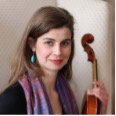
Emily Hale, violin. Audiences have described her performances as animated, intuitive and elegant. Fueled by a sense of curiosity and discovery, Emily performs baroque and classical repertoire on period instruments and creates interactive performance experiences. Her credits include recording with the London-based Early Opera Company for a BBC Channel 4 series about life in the 18th century. She’s played chamber music and opera repertoire at the Valletta International Baroque Music Festival in Malta and at the London Handel Festival. In New York, she has appeared with Teatro Nuovo, Four Nations Ensemble and The Sebastians, and in Boston with Arpeggione Ensemble and Emmanuel Music. From intimate house concerts to leading a pop-up baroque orchestra at Boston’s Roslindale neighborhood Porchfest, Emily is focused on connecting with audiences.
Job Salazar, violin. “Every single one of the works was performed with virtuosity and passion.” … CONARTE, Mexico Former violinist in the Orquesta Sinfónica de Nuevo León (OSUANL) and Ópera Nuevo Leon, and previous Violin Faculty at the Music Department of the Universidad Autónoma de Nuevo León (UANL). He was showcased in the Chamber Music Festival of Nuevo León, Festival Internacional de Música Mexicana, CONARTE, KBYU Radio, and Radio Nuevo León.
Salazar-Fonseca currently performs with Crescendo, American Baroque Orchestra, Portland Bach Experience, The Unitas Ensemble, Harvard Baroque Chamber Orchestra, The Oriana Consort and The Halfmoon. He is on the faculty at The Powers Music School and has been a guest artist at Tufts University with the Early Music Ensemble. He holds degrees from BYU-Idaho, The Boston Conservatory at Berklee and The Longy School of Music of Bard College. He studied with Emma Rubinstein, Markus Placci, Saúl Bitran, Marc Dèstrube, Dana Maiben and Rachel Podger. He’s a member of Early Music America and was part of the EPLC (Emerging Professional Artist Council) and the IDEA Task Force from 2020-2023. He is also a member of the VDGSA (Viola da Gamba Society of America), and The American Federation of Musicians.
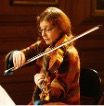
Jessica Troy wears many freelance hats. Ensembles she is a member of or performs regularly with include: Philharmonia Baroque, Trinity Wall Street, the Sebastians, the Orchestra of St. Luke’s, NYC Opera, Festival Orchestra of Lincoln Center (formerly Mostly Mozart). She can be heard on the Marlboro Festival’s 50th anniversary CD in György Kurtág’s Microludes, which she prepared with the composer. She has played in numerous Broadway pits (ranging from Porgy & Bess to Tootsie) and on many film scores (most recently Joker and Little Women). She has recorded quartet tracks for Lou Reed and Ani DiFranco, performed on TV with Renée Fleming and Whitney Houston, and on film with David Byrne.
Originally from Oakland, California, Madeline Stewart is an active violist, violinist, and educator in the Boston area.
Currently, she serves as Violin and Viola Faculty at the Boston String Academy, and frequently performs as an orchestral and chamber music artist throughout the US and abroad.
In recent years, Madeline has performed locally in New England with the Boston Modern Orchestra Project, Unitas Ensemble, Phoenix Ensemble, Lowell Chamber Orchestra, and the New Bedford Symphony. In addition to her accomplishments as a modern performer, Madeline is equally adept with period performance. She has appeared with various early music ensembles including San Diego Bach Soloists, Harvard Baroque Chamber Orchestra, and Opera Neo, where she has held both second violin and viola principal positions for period opera productions in San Diego, Tijuana, and Budapest.
Madeline is looking forward to her first set of performances with Crescendo Music, and is performing on her baroque viola made by luthier Timothy Johnson, dated 2015.
Nathan Whittaker, violoncello, enjoys a unique and diverse career as a concert soloist, chamber musician, recitalist, teacher, and historical cello specialist with concert stops ranging from New York to Seattle to Dubai. He is the Artistic Director of Gallery Concerts (Seattle), a concert series of chamber music on period instruments, and regularly performs with the Trinity Baroque Orchestra, Pacific Baroque Orchestra, New York Baroque Incorporated, ARTek, El Mundo, The Sebastians, and the Pacific Northwest Ballet and has served on the faculty of Cornish College of the Arts. He can be heard on recordings by ATMA Musique, Harmonia, and Centaur, as well as live broadcasts by NPR, CBC, and KING FM. Dr.
Whittaker holds a Doctorate of Musical Arts from the University of Washington and Bachelors and Masters degrees from Indiana University. He performs on a cello of Mario Gadda from 1957, and a baroque cello of Johann Christian Ficker II from c. 1770.
Guinevere Fridley is a baroque and modern bassist, and viola da gambist in the Boston area. She approaches music from a historically informed performance practice viewpoint, striving to bring the music of the past to life. Guinevere has performed with various ensembles including the Handel and Haydn Society, Arpeggione, Arcadia Players, Eudaimonia, Emmanuel Music, and Church of the Advent. She has served as both a soloist and ensemble member in numerous ensembles at universities in the Boston area. She has participated in many festivals throughout her musical career including the American Bach Soloists Academy, Oregon Bach Festival,Viola da Gamba Society of America’s Conclave, and Amherst Early Music Festival. Guinevere holds a Masters degree in Baroque Bass/Violone and in Viola da Gamba from Longy School of Music of Bard College and a Bachelor of Music in Double Bass Performance from Boyer College of Music and Dance at Temple University.
Paul Perfetti, trumpet, is a Boston based freelance trumpeter on modern and historic instruments. As a Broadway show performer, he enjoyed a long tenure as principal trumpet for two national tours of Les Misérables from November 1987 thru July 2006. In addition to freelance performing Paul currently serves as a classical and theater music contractor.
Organizations include The Handel + Haydn Society, Teatro Nuovo (NY), Aston Magna, Boston Early Music Festival (BEMF), Boston Baroque, Apollo’s Fire (OH), Emmanuel Music, and others. Recordings on Telarc, Linn, Coro, Dorian and Centaur. Mr. Perfetti has appeared as a guest lecturer at the Boston Museum of Fine Arts Musical Instrument Collection and at the New England Conservatory of Music. Formerly positions include Artistic Administrator and Personnel Manager of Boston Baroque), and Orchestra Personnel Manager of Emmanuel Music Boston. Mr. Perfetti holds a MM in trumpet performance “with distinction” from the New England Conservatory of Music and a BM from the University of Wisconsin.
Brian Kanner, trumpet, specializes in the historic performance of music from the Baroque era, studying natural trumpet with Barry Bauguess and Kris Kwapis. Brian has perfomed as an ensemble player and soloist with such early music groups as REBEL, Yale Schola Cantorum, Crescendo, Teatro Nuovo,Grand Harmonie, Bourbon Baroque, members of Julliard 415, and the U.S. Army Old Guard’s Baroque Trumpet Ensemble, as well as the Westchester Oratorio Society, Burlington Choral Society and Kentucky State Opera. He has also studied and performed at Oberlin College’s Baroque Performance Institute (2007-2010), the Maryland Early Brass Festival and the Historic Brass Society.
Brian also performs music from the Civil War and Victorian eras on original 1860s cornets with Federal City Brass Band, 26th North Carolina Regimental Band, Newberry’s Victorian Cornet Band and the Coates Band. He has performed at the Smithsonian Museum of American History, Ford’s Theater, Lincoln Center, The Kennedy Center, the National Archives, Arlington House, the Vintage Brass Festival and Gettysburg. Brian is past president of the National Association for Civil War Music. Brian graduated from the University of Buffalo, where he played in its symphonic orchestra and studied with Charles Gleaves of the Buffalo Philharmonic.
Ben Harms, timpani and percussion, has played in dance bands and symphony orchestras as well as in chamber and percussion ensembles. He was a founding member of the Naumburg-Award winning CALLIOPE Renaissance Band, an ensemble in which he also performed on wind and string instruments. He has been a decades-long member of the Metropolitan Opera Orchestra.
Ben holds degrees from Cincinnati Conservatory of Music, Curtis Institute, and City University of New York. He was also a Fulbright scholar to Germany. He makes historical percussion instruments at his workshop in New Marlborough, Massachusetts.
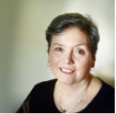
Alison Gangler, oboe, has been able to enjoy a career in Europe and the United States, performing and recording with many well-known ensembles of Historical Performance, as well as now playing actively in the New England region and beyond. She has performed and recorded with groups such as Musica Antiqua Köln, Concerto Köln, Accademia Bizantina (Ravenna, Italy), Freiburg Baroque Orchestra, Akademie für alte Musik Berlin, Concentus Musicus (Vienna), Les Arts Florissant (Paris, France), L’Arpa Festante, and Stuttgart Baroque Orchestra. Since returning to live in the U.S. she has concentrated on performing and teaching from her home location in New Hampshire. She plays regularly with Boston Baroque and Newton Baroque. Alison has recorded for the labels Deutsche Grammophon Archiv, Harmonia Mundi, Teldec, Capriccio, Jaro, and Channel Classics.
Owen Watkins has performed on baroque oboe, recorder and early clarinet with many period instrument ensembles in the United States including Boston Baroque, Boston Camerata, Handel and Haydn Society, Washington Bach Consort, Arcadia Players, Ars Lyrica Houston, Opera Lafayette and the Four Nations ensemble. A graduate of the Sydney Conservatorium, Owen also studied at Sweelinck Conservatorium in Amsterdam and Boston University where he graduated with a master’s degree in baroque oboe.
In conjunction with a performing career Owen has worked as an instrument maker with Von Huene Workshop for eight years, making recorders, collaborating with Joel Robinson in New York City on historical clarinet and basset horn. During 2014 and 2015 he was woodturner at Morgan Recorders in Daylesford Victoria before working for five years as an instrument technician at Sax and Woodwind in Sydney. Owen currently runs his own workshop in Dover NH where he repairs antique and modern woodwinds and makes baroque oboes based on an original instrument by I W Kenigsperger in the Museum of Fine Arts in Boston.
Praised for his musicality and virtuosity, Allen Hamrick enjoys a varied career as a period bassoonist and recorder player. As a bassoonist, he has performed with the Boston Early Music Festival, Boston Baroque, The Handel and Haydn Society, the Teatro Nuovo festival, as well as with other ensembles across the country. He has appeared as a recorder player with Minnesota-based La Grande Bande, and has appeared as a recorder player and a dulcian player with La Fiocco, delighting audiences with the “purity of his sound.” Upcoming performances include appearances with Boston Baroque, Boston Early Music Festival, and Teatro Nuovo. Allen is also an avid educator, serving as bassoon faculty for the Instrumental and Vocal Extension Program for the school system in Wellesley, MA. Allen holds music degrees from Indiana University, University of North Carolina School of the Arts, and The Juilliard School.
Chilean-American keyboardist Juan Andrés Mesa holds both a Master of Music degree in organ and harpsichord performance and a PhD in Music Theory from the Jacobs School of Music at Indiana University. Dr. Mesa has performed solo organ and harpsichord recitals across the US, Canada, Chile, and Argentina, and collaboratively with In Stile Moderno, MIRYAM, the University of Notre Dame’s Children’s Choir, Exordium ensemble of Bloomington IN, and Crescendo ensemble of Lakeville, CT, among others. Recent engagements include collaborative performances for the Bloomington Early Music Festival (BLEMF), the Quincy Choral Society, and Boston’s Society for Historically informed Performance (SoHip) concert series. Juan is currently College Organist and Associate Professor of Music Performance (organ) at Wheaton College in Norton, MA, Director of Music and Organist at St Leonard’s Church in Boston’s North End, as well as Music Minister at the Roslindale Congregational Church.
Christine Gevert, conductor, holds a master’s degree in organ and early music performance from the Hochschule für Musik und Theater, Hamburg, Germany. After earning a bachelor’s degree in music theory from the Conservatorio Nacional de Chile, she studied choral and orchestral conducting in Berlin and harpsichord in London. She has taught at the Berliner Kirchenmusikschule, the Universidad de Chile, and the Pontificia Universidad Católica in Santiago, Chile.
While conducting and performing in Europe and South America, she also recorded for Carpe Diem and Alerce. She has led master classes and workshops in early music, harpsichord, and baroque vocal technique at music festivals in Germany, Chile and the U.S., and has taught historic keyboards at the Berlin Church Music School in Germany, and locally at Bard College at Simon’s Rock. Ms. Gevert has appeared at the Washington Early Music Festival, the Berkshire Choral Festival, the Fringe concerts of the Boston Early Music Festival, and the Amherst Early Music Festival. In recent years she has given solo harpsichord recitals at the Early Music Festival in Narol, Poland, at the historic Auditorium Wanda Landowska near Paris, at the Metropolitan Museum of Art, and the Brooklyn Beat Festival. She performed at the International Festival of American Renaissance & Baroque Music at the Chiquitan Missions in Santa Cruz, Bolivia. She has authored and published more than eighty historical basso continuo realizations with the Swiss music publisher, Amadeus Verlag. The founder and artistic director of Crescendo and her own baroque ensemble Les Inégales, Christine is currently music director at Trinity Episcopal Church, Lime Rock, CT.
Crescendo and its programming
Crescendo is a national-award-winning music performance organization. For more than fourteen years, Crescendo has presented concerts year-round in northwestern Connecticut, the Berkshires, and the mid-Hudson Valley of New York. The organization is based at Trinity Church Lime Rock in Lakeville, CT.
Founder and Artistic Director, Christine Gevert, is celebrated for her innovative approach to programming and performance. Crescendo’s audiences are often rewarded with programs of rarely-heard and newly discovered works. Often Ms. Gevert uses original manuscripts to make her own performing editions for chorus, soloists and orchestra because there are no existing published editions. Frequently our programs feature early and contemporary music works alongside each other, creating a contrast for the listener. Eight new works have been commissioned for our chorus and vocal ensemble. Crescendo has presented ten U.S. premieres.
Crescendo’s innovative programming relies on a local base of dedicated and talented auditioned amateurs and professionals who make up the Crescendo Chorus and Crescendo Vocal Ensemble. Crescendo has its own Period Instrument Orchestra and Andean Ensemble, comprised of professionals from New York, Boston, Philadelphia, Washington DC and Hartford. These instrumentalists and the internationally recognized soloists who regularly collaborate with Crescendo bring the performances to a level comparable to the best ensembles in the country. Instrumental music ensembles and concerts with vocal soloists have been part of Crescendo’s programs since the beginning. Some of the performers have been: Julianne Baird (Philadelphia) soprano, Nicholas Tamagna (New York) countertenor, Peter Sykes (Boston) and Władysław Kłosiewicz (Warsaw, Poland), harpsichord, Chris Bellsucio (Boston), natural trumpet, Tricia van Oers, recorder, I Fagiolini Renaissance Vocal Ensemble (London, UK), L’Orchestre de Chambre Francaise (Paris, France), Peter Lekx (Montreal) baroque violin, Duo Alturas (Hartford) charango, viola and guitar, and Duo Les Inégales, traverso and harpsichord.
We are strongly committed to educational outreach―to our own singers, our audiences and local students. Talented local high school singers and young musicians are coached by Ms. Gevert as part of our “Young Baroque Artist Program”, and often play a part in our performances. She and members of the chorus visit local schools to work with students.
Artistic Director Christine Gevert is celebrated for her innovative approach to programming and performance: In 2014 Crescendo won the prestigious Chorus America / ASCAP Alice Parker Award. Today’s programming reflects some of the diversity and scope of music that Crescendo is known for.
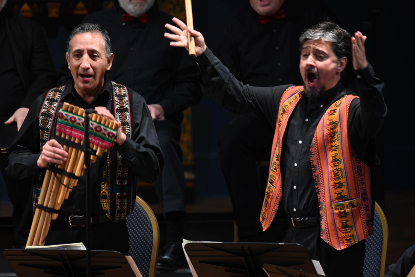
Musicians of Crescendo’s Latin American Ensemble
About the Performance
Johann Sebastian Bach’s musical achievement for me is both the culmination of music until that time, and the root of all music with a certain degree of depth that followed. The ‘Bach-Circle’ in that sense would include many more composers and compositions than what this program can offer. Bach himself admired the great musicians of his time, and was willing to sacrifice an extraordinary amount of time and effort to learn from them, as we well know from his extended trip to be with his mentor Dietrich Buxtehude in Lübeck. But – in accordance with the values and worldview of his times – he did not view himself and his compositions as something of any relevance for the future. His beliefs moved him to create to the glory of God alone (“In soli Deo gloria”). Whether we believe in God, or agree with the Christian, or even more specifically Lutheran church dogma, and all the ups and downs of the church as an institution over the centuries seems to become irrelevant (at least to me), when hearing Bach’s music.
The concept of “The Light of the World” as the incarnation of the Divine is not unique to Christianity. So the mystery and awe in the face of this can resonate with all of us through this festive, and sometimes even mystical music. The year-end is always a moment of reflection, assessment, evaluation, and also of pausing to articulate hopes, goals and dreams for the year to come. The Advent, Christmas, and New Year compositions of Bach’s predecessors and contemporaries in our program translate these thoughts and ideas into music that ranges from the era of Monteverdi to the galant style of the mid 18th century. In juxtaposition to this, the three contemporary composers express the emotional and magical aspects of this season in an expanded harmonic and a different structural parameter. And they are female, something which was not common for composers in the Baroque or earlier eras.
Nowadays none of us has to leave their homes to hear new music, as everything is there for us to partake in with just one click… Yet hearing music performed live is still a privilege – as much as it is for the performers to be heard by an audience willing to be there. That connection between the composer, the performer and the listener is as precious and unique as in Bach’s times.
By Chistine Gevert
Download the Program for Full Text and Translations for Each Composition. >
